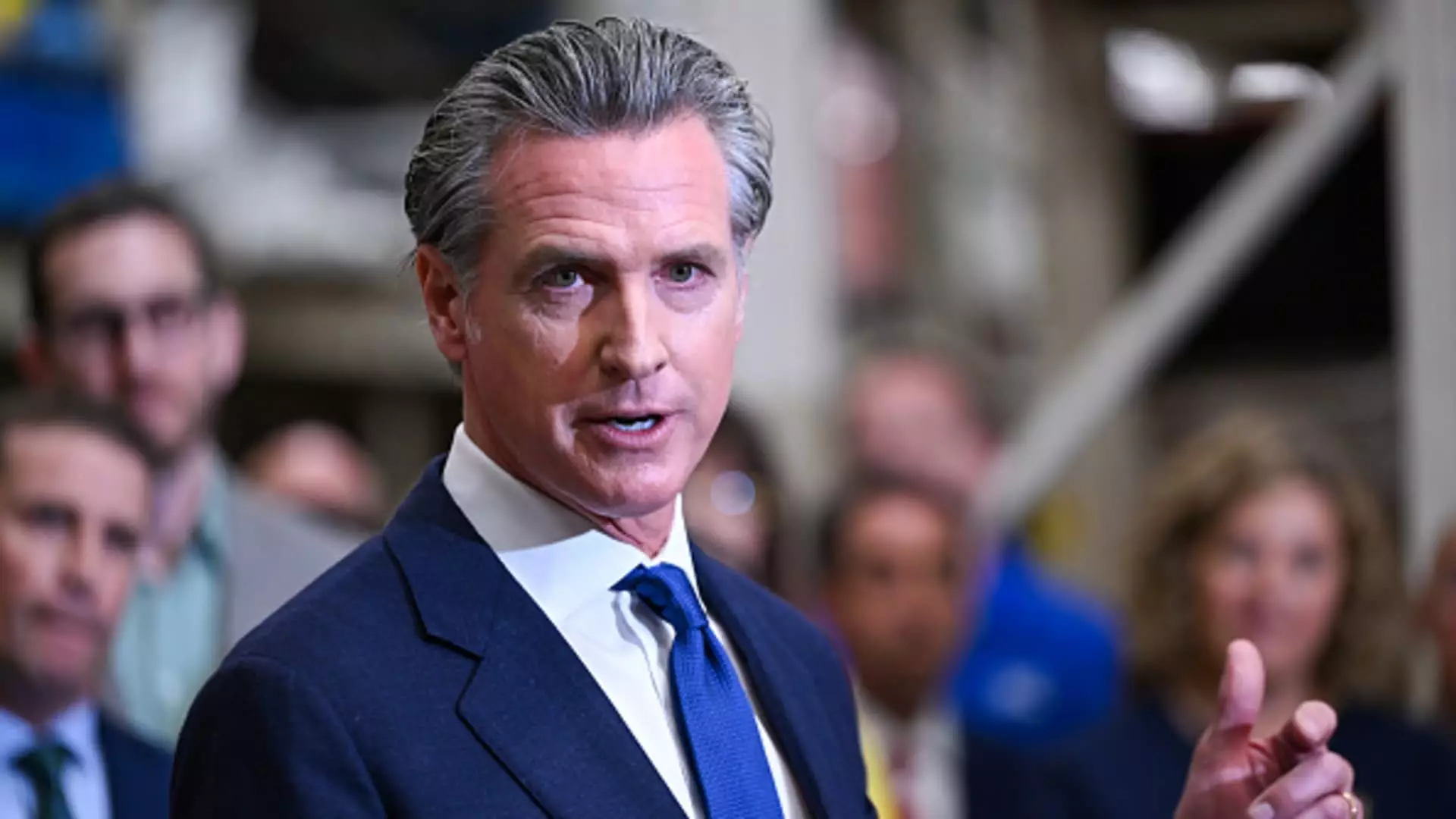As the political pendulum swings with profound consequences, California Governor Gavin Newsom is preparing his state to navigate the choppy waters anticipated from the incoming Trump administration. The onset of a special legislative session marks a pivotal moment for a state that is frequently at the forefront of national politics. This initiative aims to create a legal fund designed to mitigate “federal overreach,” particularly in critical areas such as reproductive rights and environmental policy. Given California’s stature as the most populous U.S. state, its response could set a significant precedent for other states grappling with similar issues.
Legislating Against Federal Policies: The $25 Million Litigation Fund
One of the cornerstone proposals in this special session is the establishment of a $25 million litigation fund. This financial reservoir is intended to enhance California’s legal resources, enabling the state to challenge federal policy changes perceived as detrimental to its populace. Governor Newsom has expressed a pressing need to prepare proactively for legislative initiatives that might conflict with California’s progressive ethos. By allocating resources to the California Department of Justice and other related agencies, Newsom aims to fortify their capacity for court challenges and administrative actions, thereby reinforcing California’s legal defenses.
In an age where executive action can rapidly shift federal policy, this strategy highlights the simmering ideological battle between state sovereignty and federal authority. As history has shown during Trump’s first term, litigation has emerged as a fundamental tool for states like California to assert their interests. With the California DOJ having litigated against the Trump administration over 120 times, the governor is signalling a clear intention to continue this trend.
Under Pressure: A Response to Republican Challenges
Reactions from the Trump camp signal that California’s maneuvers are anticipated but met with resistance. Karoline Leavitt, a spokesperson for Trump’s transition team, emphasized that the president-elect would pursue his agenda resolutely, dismissing Newsom’s efforts to insulate the state as ineffective. The assertion that more Californians supported Trump than any Republican candidate in recent years indicates a potential shift in political sentiment. As Newsom prepares to wield California’s legal resources as a shield, the Republican narrative frames Newsom’s policies as harmful, raising the stakes in a state with a complex political fabric.
This clash of narratives reflects a broader national trend wherein states are compelled to address local grievances that resonate strongly against a backdrop of federal governance. For states like California, the balance between upholding progressive values and responding to conservative pressures will likely define their political trajectories in the coming years.
The composition of California’s recent election outcomes reveals an electorate divided along both economic and social lines. While Governor Newsom remains committed to advancing progressive policies, recent victories for conservative candidates signal that fiscal concerns—especially relating to housing and taxation—are paramount to many voters. The election of new conservative district attorneys in large municipalities underscores this shift, suggesting that there is a demand for a reevaluation of crime and punishment paradigms in California.
Voter behavior also indicates a reaction against high living costs, which have become emblematic of Newsom’s governance. The failed proposition to raise the minimum wage amidst a backdrop of drug penalty increases emphasizes the tension between social justice initiatives and economic realities that govern many Californians’ lives. As such, this special legislative session not only grapples with potential federal overreach but also reflects a broader challenge to manage a diverse and economically troubled state.
In a bid for progress, Governor Newsom has shown a willingness to engage with the Trump administration while simultaneously protecting California’s interests. He has articulated a dual commitment: to cooperate where beneficial but to judicially contest where overreach threatens the state’s welfare. This balancing act epitomizes the broader struggle of state governments scrambling to maintain autonomy amidst federal policies that may not reflect local values.
As Newsom embarks on this crucial special session, California’s legislative approach becomes a beacon for other states embroiled in similar conflicts. Significantly, it raises essential questions about the nature of governance, the role of states in an increasingly polarized political climate, and the enduring relevance of local autonomy.
Californians are bracing themselves for a turbulent political climate, and Governor Newsom’s proactive legislative efforts reflect a deep-rooted resolve to protect the state’s interests. In a time when the specter of federal overreach looms large, California’s ambitions to harness a $25 million litigation fund serve not just as a tactical legal resource but as a rallying point for those invested in safeguarding the state’s progressive legacy. As the state prepares for what lies ahead, its response could very well define the broader dynamics of state-federal relations in the years to come.

Leave a Reply